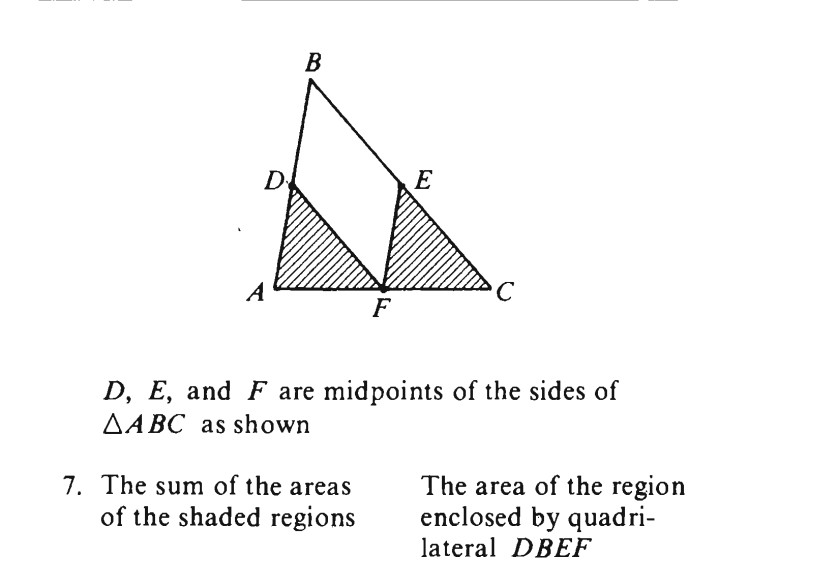I am unable to solve the following problem on Triangles
I was unaware about the fact that big book questions were not allowed in this forum and will take this down.
That isn’t the case - see the above link.
To clarify, can you share with us more about your approach to the problem and what you don’t quite get?
Sure, i am able to arrive at the answer by assuming 2 things
- ∆’s ADF & ABC are similar and ∆’s EFC and ABC are similar
- ∆ ABC is equilateral
Then assigning numbers helps arrive at the answer, however, i am unable to justify my assumptions since :
- There is only one angle common in the two sets of similar triangles listed above ( ∠A & ∠C respectively) and no mention of EC ∥ DF(for adf & abc) and EF ∥ AD(for efc & abc).
- Unable to justify this assumption entirely.
hey did you find an explanation here?
Somehow we missed it - share your approach.
I think an equilateral triangle can be divided into smaller equilateral triangles. So the two equilateral triangles will be equal to the quadrilateral (which is a sum of the remaining smaller equilateral triangles) let me know if I’m on the right path. I got this wrong too, lol!
While the reasoning is a bit loose, I think it makes sense yes.
